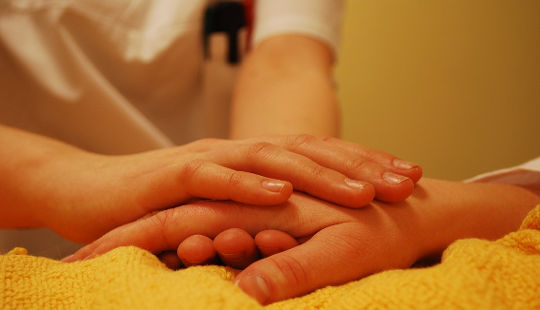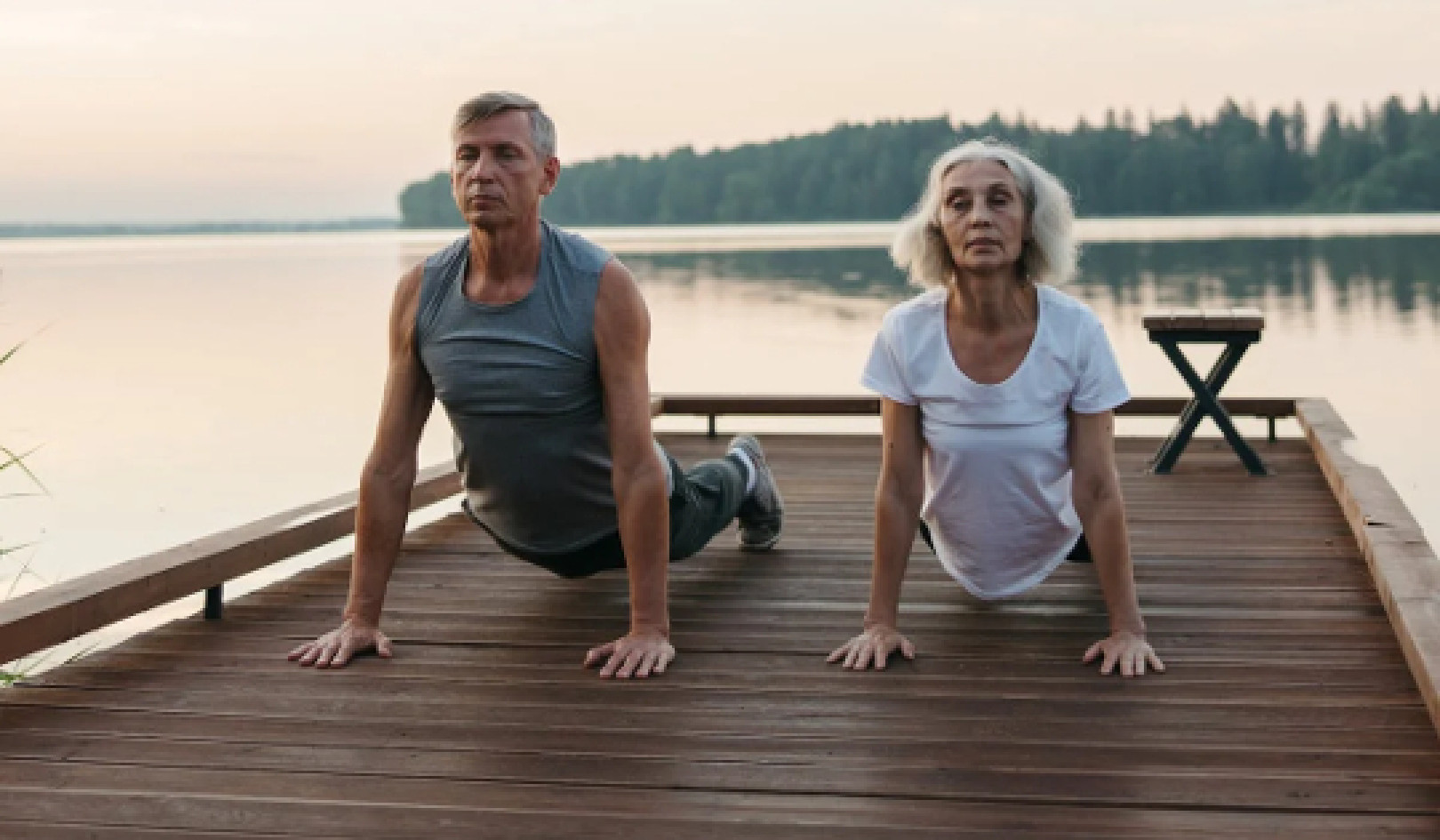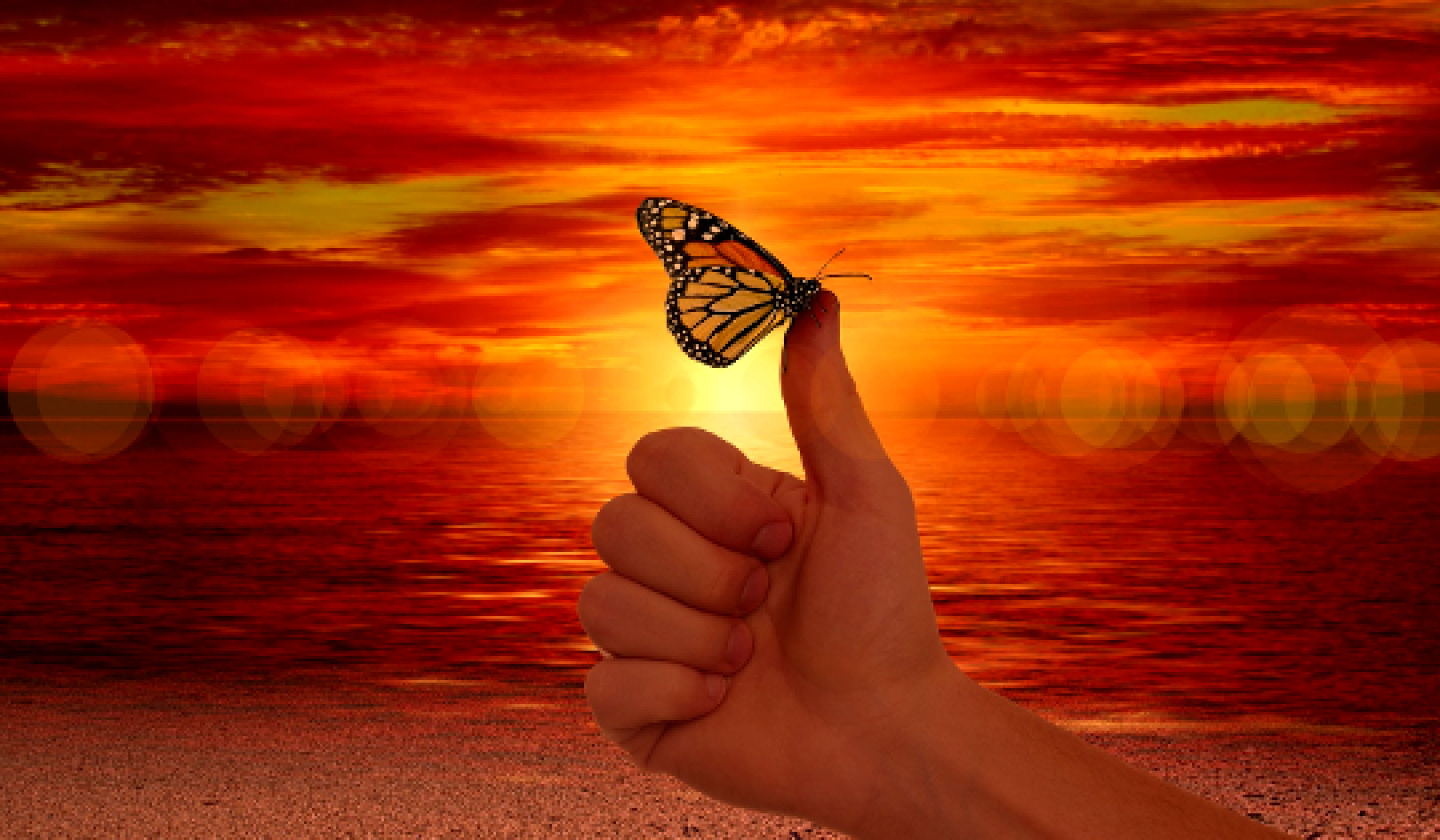
In Eastern medicine, within the vast realm of ancient Eastern philosophies, there are old ideas and principles that have been developed over the centuries that connect certain body regions and organ systems with specific emotions. Could it be that emotions out of balance lead to organ system dysfunction or vice versa? Or perhaps the emotional imbalance simply coexists with the physiologic imbalance? The fact is that a relation ship between the two is acknowledged as a given in many parts of the world.
Eastern perspectives in health have always recognized the emotions as an integral part of overall health, whether through the system of chakras—energy centers of the body—or the meridian system of energy points and channels. Based on the crudest of interpretations of a few Chinese medicine principles, we can roughly summarize rudimentary connec tions between these five primary emotions and how they relate to anatomy as follows:
lung <=> sorrow
liver <=> anger
heart <=> joy
spleen <=> worry
kidney <=> fear
(It should be noted that organ names in this list are used to refer to a wider system of body meridians, which ultimately do affect the organ in question but in a subtle way—not necessarily in the linear, mainstream medical sense where full blown pathology would be evident. Meridians are defined in acupuncture and Chinese medicine as a series of pathways in the body along which vital energy flows. There are twelve such pathways associated with specific organs.)
As with all other stressors, it’s the overall imbalance of these emotions that can be associated with stress at any particular part of the meridian system. Emotions are seen as occurring on one of these five areas as listed above—each along an infinite spectrum. For example, an excess of “joy” would be what we might consider mania in the extreme, and this can be just as damaging to the heart meridian or heart energy as can be a depletion of joy, which we might see as depression in the other extreme. (This simplistic statement does no justice to the complexity of how the five elements and organ systems interrelate. One is never affected without consequences to all five other systems in some way. )
Paying Attention to Your State of Mind
What’s significant here is that most Eastern styles of medicine pay just as much attention to the patient’s state of mind as to the state of his or her tissues and organs. This insight and acknowledgment of the whole person rather than reducing us to our individual body parts is based on healing methods centuries old that survive because they work.
There do exist more modern Western interpretations of the connection between pain and state of mind, such as that promoted by Louise Hay (known for her support of and pioneering work with mind-body centered resource centers in the United States). These correlations most likely have their roots in ancient Eastern thought connecting a wide spectrum of the five basic emotions and elements with body regions and tissue systems.
While there is a growing body of research in the field of “psychoneuroimmunology,” I urge you to review this information with an open mind and cautious perspective. There is danger in thinking too rigidly that we have an exclusive, internal locus of control. (Locus of control refers to the extent to which individuals believe that they can control events affecting them.) We must do the best we can to control what we can—and there is indeed much that is within our control—but there are also things in life that are best let go of. The trick is knowing where that line is.
You can’t go wrong if you make sure to always be kind to yourself. Be accepting of circumstances outside of your control. See the hopefulness in the information presented here but beware any crushing sense of responsibility to take it all upon yourself. What is up to you and only you is finding a peaceful perspective and acceptance. It’s our tendency to struggle against what is that causes emotional imbalance.
Addressing Three Aspects of Emotion
The mind-body connection is indisputable. Circumstances are sometimes out of our control, but how we face these circumstances shapes our experience, and that is something completely within our control.
Now would be a good time to ask: “How do you use this information about emotions to keep the everyday pain from happening again?” It will have to involve addressing three aspects of emotion:
- Stress
- Self-image
- Worldview
Providing An Outlet for Stress
To address stress, we should be aware that the kind of emotional stress that leads to inflammation starts in the “reptilian brain” and has an extremely reasonable survival purpose. (The term “reptilian brain” refers to our most primitive brain functions.) We can’t just tell ourselves to stop being stressed when it’s based on a legitimate biologic need.
What we have to do is find a way to provide an outlet, an opportunity for our physical body to release the chemical storm of this very sensible but misplaced fear response. When we find ways to release and redirect this kind of stress, we will effectively be stepping out of the way to allow our body’s natural processes to take place.
It’s not often socially acceptable to scream and cry when we feel biologically stressed like we can do as infants, and in fact it’s probably not helpful chemically to do it for prolonged periods of time. Have you ever noticed that when you scratch an itchy insect bite, it tends to just get itchier? In the medical world this is referred to—in not-so-sophisticated terms—as the “itch scratch cycle.”
A similar thing can happen with the fear and anger behind stress. The more time we spend screaming and crying—whether that’s literally or figuratively—the more we effectively scratch that stress-itch and reinforce it. Okay, so the answer we’ve come up with as adults is to bottle up—scream and cry on the inside instead of letting it out. But there are other ways to cope.
Of course, this begs the question: “How, then?” How do we allow the natural processing of this fear response? Here are some ideas:
- Exercise!
- Sleep!
- Shift...your outlook on life!
Exercise! and Recalibration of the Mind
This doesn’t have to be of the butt-kicking variety in order to achieve positive effects on stress. In fact, you should be careful how much stress your exercise habits themselves might be causing. Sometimes vigorous sustained exercise just encourages the production and release of destructive stress hormones.
Your mindset during exercise is also important. Are you enjoying the activity? Are you focusing on how terrible you feel, or on how much you’d rather be doing something else? Then maybe exercise is not the best way for you to decompress.
Exercise is important for many physiologic reasons, but it can also be possible to find perspective and gain control over stress by simply connecting with nature. Hiking in the woods, for example, can provide a form of moving meditation that triggers anti-depressant effects from the side-to-side eye motion required during that kind of walking. “Quiet time” is something you can experience while moving about gently in nature, or you can experience it in the gym getting a sweat going, with your headphones on. Anything that provides focus and reflection inward is something you can use to recalibrate the mind.
Recalibration of the mind and emotions is ultimately the result of a chemical shift in your brain and body. The tool that leads you to that shift can be something like aerobic activity, which studies have shown does indeed change brain chemicals. The shift can also come from any experience that elicits a phenomenon called “flow.”
Mihaly Czikszentmihalyi is considered a top researcher on the topic of “positive psychology,” and he’s the one who came up with the concept of “flow.” Whether it’s through work, the physical effort of exercise or by sitting still on a park bench listening to birds, “flow” is the experience of effortless concentration and joy that comes from complete immersion into an experience. When we find flow, time becomes irrelevant. When you find flow in your life, you will have found an appropriate redirect for your stress, a way to control and decrease it.
Sleep! and Recharging the Mind
This phenomenon is still a bit of a scientific mystery to researchers, but there is increasing evidence that the amount and quality of sleep correlates with stress levels. It has been found to be important in warding off stress, which surely is no surprise to you. Not only does sleep make us kinder and gentler people, but based on the connection between stress and inflammation, it’s safe to say that sleep may very well be linked to inflammatory levels in the body.
The problem with sleep is that it is completely undervalued in many modern cultures. During college, it’s not uncommon to boast and be rewarded for the fewest hours of sleep or missing entire nights of sleep. Another example of pandemic proportions: Glorifying sleep deprivation is what seems to still be a prestigious rite of passage for medical residents as these young doctors begin their hospital careers. With this sort of social undercurrent, the rest of us learn to lose respect for the ritual and allow ourselves to fall out of practice with this regenerative six to nine hours a night.
It’s very important to consciously restore the routine around sleep and even consider making daytime napping a regular habit. Twenty minutes of rest with eyes closed may not bring you the deepest brainwaves of nighttime sleep, but has been shown to be close to an optimal rest time needed to recharge the mind.
Shift! Your Self-Image and Your Worldview
Shifting your outlook on life is very likely the least easy thing to change (and you might not be successful at it until you’re getting enough sleep). So many of life’s formative experiences happen during early childhood—before we have much say or awareness of these influences, yet they determine how we cope with everyday stress. How you view yourself and your world determines your experience and perception of stressful situations.
Your outlook has a lot to do with how you see yourself (your self-image) and how you see others around you in relationship to yourself (your worldview). These things sometimes require us to seek outside help. Outside therapeutic help in the area of emotional balance is sometimes the best way to achieve effective and lasting recalibration of some unhelpful perspectives learned years ago that might have us behaving and reacting on “unconscious autopilot” in unproductive ways.
Luckily, the negative stigma attached to psychotherapy is less ening (but not yet gone) and access to competent psychologists is becoming easier as the attitudes toward the discipline of mental health change. If you are truly pursuing whole health, having a psychologist on your health care team is just as essential as having a chiropractor, physical therapist, naturopath or an integrative medical doctor.
©2015 by Ya-Ling J. Liou, D.C.
Reprinted with permission. Publisher:
Return to Health Press, Seattle, WA
Article Source
 Every Body's Guide to Everyday Pain
Every Body's Guide to Everyday Pain
by Ya-Ling J. Liou, D.C.
Click here for more info and/or to order this book.
About the Author
 Ya-Ling J. Liou, D.C. is a chiropractic physician who began her professional work in 1994 after completing her coursework and clinical internship with New York Chiropractic College. Ongoing continuing education has been in the areas of chiropractic rehabilitation, nutrition and soft tissue techniques such as craniosacral therapy and myofascial release. Dr. Liou has been a faculty member at Ashmead College (formerly Seattle Massage School and newly Everest College) where she taught Kinesiology, Anatomy and Physiology. She is currently an adjunct faculty member with Bastyr University's Physical Medicine Department. Learn more at returntohealth.org.
Ya-Ling J. Liou, D.C. is a chiropractic physician who began her professional work in 1994 after completing her coursework and clinical internship with New York Chiropractic College. Ongoing continuing education has been in the areas of chiropractic rehabilitation, nutrition and soft tissue techniques such as craniosacral therapy and myofascial release. Dr. Liou has been a faculty member at Ashmead College (formerly Seattle Massage School and newly Everest College) where she taught Kinesiology, Anatomy and Physiology. She is currently an adjunct faculty member with Bastyr University's Physical Medicine Department. Learn more at returntohealth.org.

























